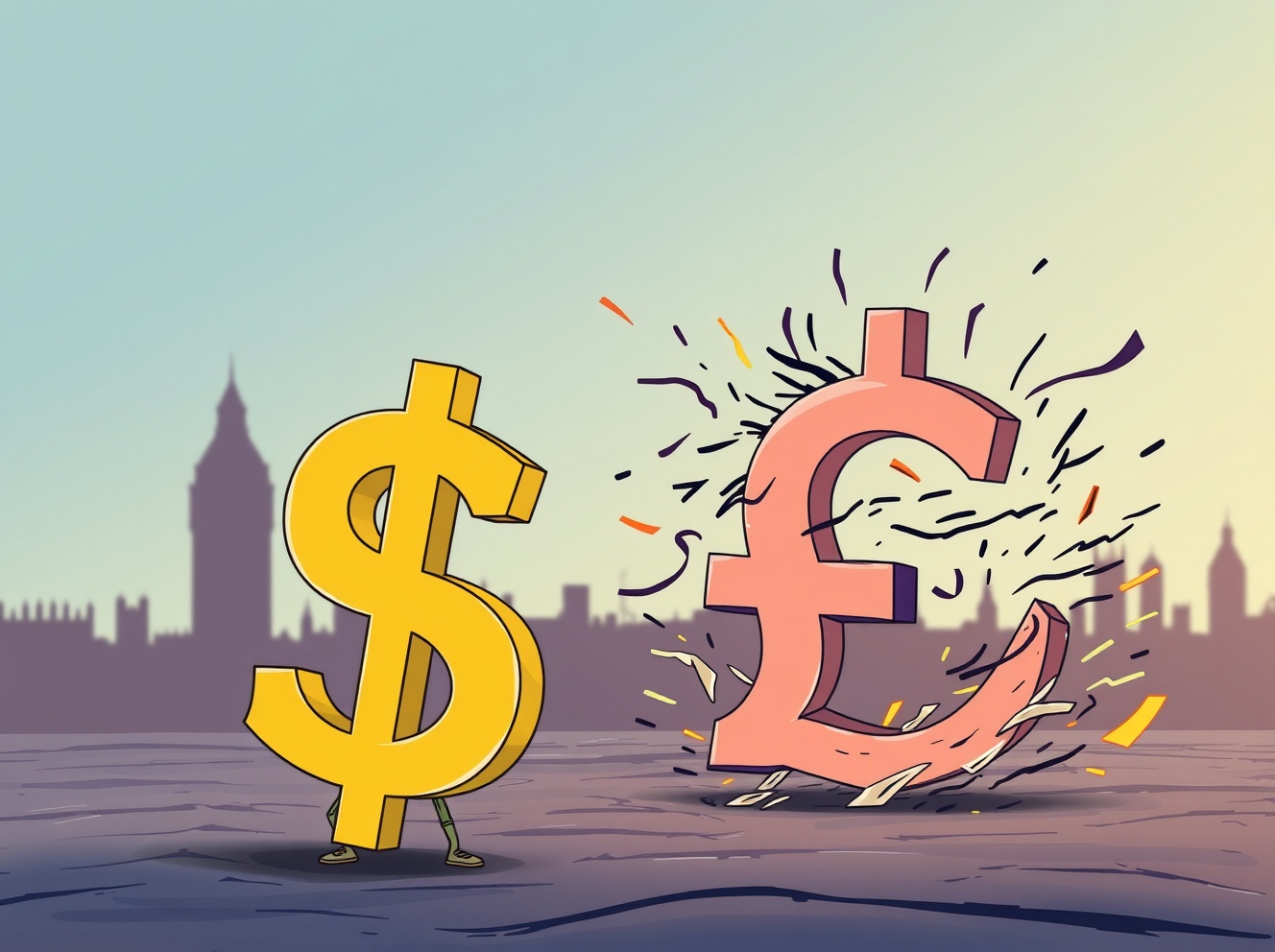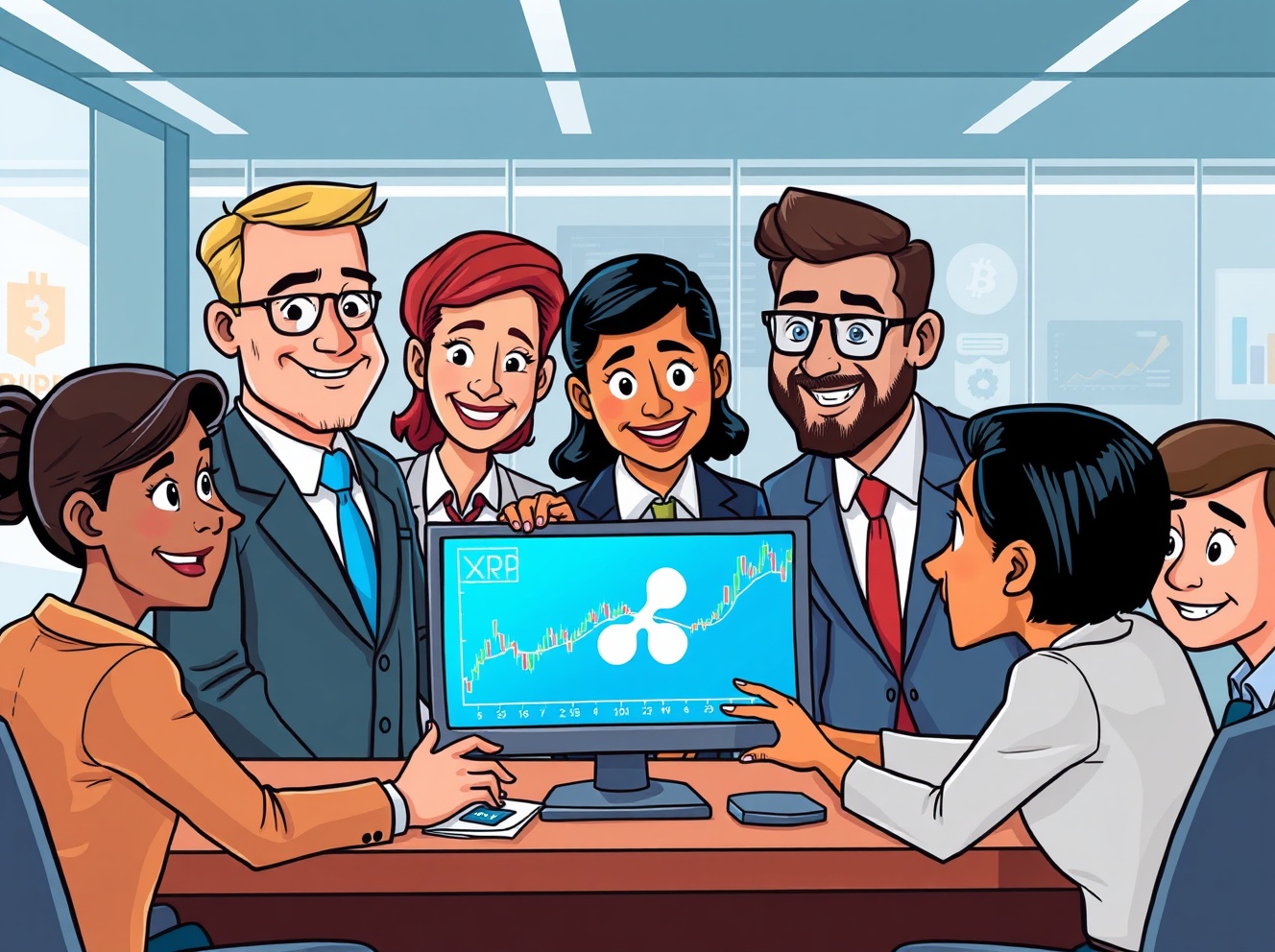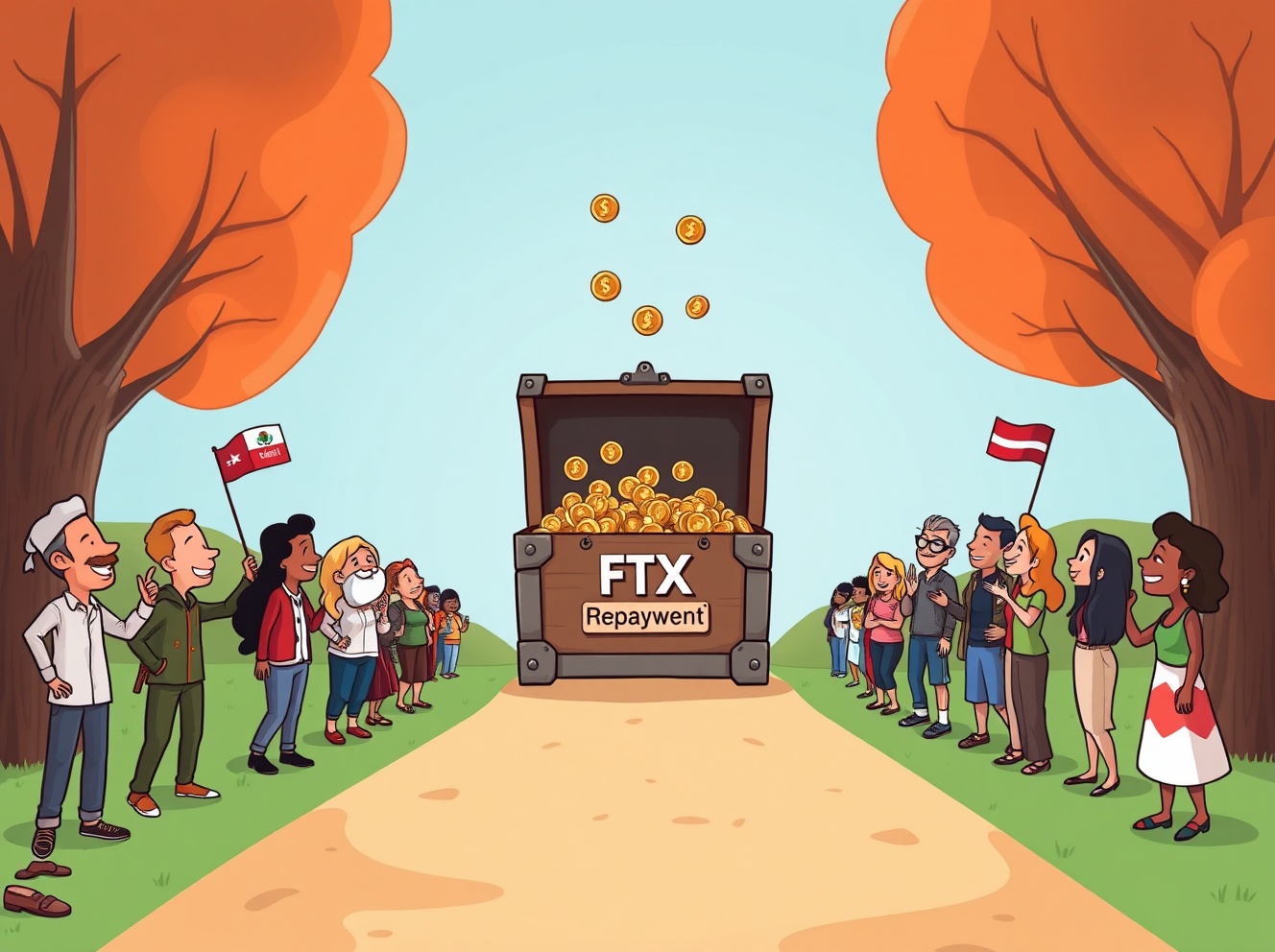
Strategy, led by Michael Saylor, plans to launch an IPO for 3.5 million shares of its Series A Perpetual Stream Preferred Stock (STRE Stock), offering a 10% annual cumulative dividend
CoinOtag
You can visit the page to read the article.
Source: CoinOtag
Disclaimer: The opinion expressed here is not investment advice – it is provided for informational purposes only. It does not necessarily reflect the opinion of BitMaden. Every investment and all trading involves risk, so you should always perform your own research prior to making decisions. We do not recommend investing money you cannot afford to lose.
US Dollar’s Resilient Reign: Navigating Global Currency Turbulence

BitcoinWorld US Dollar’s Resilient Reign: Navigating Global Currency Turbulence In the dynamic world of global finance, the stability of major fiat currencies often serves as a crucial barometer for overall market health. For those immersed in the cryptocurrency space, understanding these traditional market shifts is not just academic; it can directly influence digital asset valuations, investor sentiment, and capital flows. Recently, the US Dollar has showcased remarkable resilience, holding firm near its recent highs, while the British Sterling has faced considerable headwinds, primarily due to domestic political challenges. This divergence creates a fascinating landscape for analysis, revealing deeper insights into the forces shaping global finance. Why is the US Dollar Maintaining its Unwavering Strength? The US Dollar has long been considered the world’s primary reserve currency and a safe haven during times of uncertainty. Its current strength is not accidental but a culmination of several powerful factors. The Federal Reserve’s aggressive stance on interest rate hikes, aimed at curbing persistent inflation, has made dollar-denominated assets more attractive to international investors. Higher yields draw capital, strengthening the currency. Interest Rate Differentials: The Federal Reserve’s commitment to fighting inflation through rate increases has widened the gap between US interest rates and those in many other developed economies. This makes holding dollars more rewarding. Global Economic Uncertainty: In an era marked by geopolitical tensions, energy crises, and inflation fears, the dollar acts as a safe harbor. Investors flock to US assets, perceived as stable, when other markets become turbulent. Robust US Economic Data: Despite concerns, the US economy has shown relative resilience, particularly in its labor market. Strong employment figures and consumer spending can bolster confidence in the dollar’s underlying economic support. This sustained strength of the US Dollar has significant implications, not just for traditional markets but also for the cryptocurrency ecosystem, often impacting the price of Bitcoin and other digital assets, which are typically priced against the dollar. What Political Woes are Hitting the British Sterling So Hard? While the dollar enjoys its moment of strength, the British Sterling tells a different story. The UK economy has been grappling with a series of challenges, exacerbated by political instability. Frequent changes in leadership and policy direction have created an environment of uncertainty, which currency markets inherently dislike. Political Turmoil: The UK has seen significant political shifts, including leadership contests and policy reversals. Such instability erodes investor confidence, making the pound less appealing. High Inflation and Cost of Living Crisis: The UK is facing some of the highest inflation rates among G7 nations, severely impacting household incomes and consumer spending. This economic pressure puts the Bank of England in a difficult position, balancing inflation control with economic growth. Recession Risks: Many economists predict a recession for the UK economy. A shrinking economy typically weakens its currency as prospects for future growth diminish. Lingering Brexit Impact: While not a new issue, the long-term economic consequences of Brexit continue to weigh on trade relationships and labor availability, adding to the Sterling’s vulnerability. The combined effect of these factors has put immense pressure on the British Sterling , leading to its depreciation against major currencies, including the strong US Dollar. Understanding Forex Market Dynamics: What Drives Currency Volatility? The Forex market , or foreign exchange market, is the largest financial market globally, where currencies are traded. Its sheer scale and constant activity mean that understanding its dynamics is key to grasping broader economic trends. Currency values are not static; they are in constant flux, driven by a complex interplay of economic, political, and psychological factors. Here are some core drivers of Forex market movements: Interest Rates: As seen with the US Dollar, higher interest rates attract foreign capital seeking better returns, strengthening a currency. Economic Performance: A country with a strong, growing economy tends to have a stronger currency. Indicators like GDP growth, employment rates, and manufacturing data are closely watched. Political Stability: Stable political environments foster investor confidence, while instability, as experienced by the British Sterling , can lead to capital flight and currency depreciation. Trade Balances: A country that exports more than it imports (a trade surplus) will generally see its currency strengthen as foreigners buy more of its goods and thus its currency. Market Sentiment and Speculation: Trader expectations and large speculative positions can also significantly influence short-term currency movements. The contrasting performance of the US Dollar and British Sterling vividly illustrates these dynamics. One benefits from favorable interest rate differentials and safe-haven demand, while the other struggles with political uncertainty and economic headwinds. Factor US Dollar (USD) British Sterling (GBP) Interest Rates Higher Federal Reserve rates attracting capital, supporting value. Bank of England balancing inflation control with growth, creating uncertainty. Economic Growth Relatively robust, resilient labor market and consumer spending. Slowdown, high inflation, and significant recession risks. Political Stability Generally stable, predictable policy environment. Frequent leadership changes, policy uncertainty, impacting confidence. Safe-Haven Status Strong demand during global crises, seen as a reliable store of value. Limited safe-haven appeal, vulnerable to global risk-off sentiment. Inflation Outlook Fed actively tackling inflation, signs of potential moderation. Persistent high inflation, impacting real wages and consumer purchasing power. The Ripple Effect of Currency Volatility on Global Economics Currency volatility is more than just a concern for Forex traders; it has far-reaching implications for global economics. A strong US Dollar can make US exports more expensive, potentially dampening demand from other countries. Conversely, it makes imports cheaper for US consumers, which can help mitigate domestic inflation but also impact local industries. For countries with dollar-denominated debt, a strong dollar means a higher cost of repayment. For the UK, a weak British Sterling can make its exports cheaper and more competitive on the global market, potentially boosting trade. However, it also makes imports more expensive, contributing to inflationary pressures and increasing the cost of living for consumers and businesses reliant on imported goods, such as energy. This creates a difficult balancing act for policymakers and businesses alike. Impact on Trade: Currency fluctuations directly affect the cost of imports and exports, influencing trade balances and corporate profits. Inflationary Pressures: A depreciating currency makes imports more expensive, feeding into domestic inflation, while an appreciating currency can help curb it. Investment Flows: Currency stability and strength are key considerations for foreign direct investment. Volatility can deter investors. Central Bank Responses: Central banks like the Federal Reserve and the Bank of England are constantly monitoring currency movements, often adjusting monetary policy in response to maintain economic stability. Understanding these ripple effects is crucial for anyone looking to navigate the complex landscape of global economics . Actionable Insights for Traders: Adapting to Current Global Economics For those involved in the Forex market , the current environment presents both challenges and opportunities. Navigating a strong US Dollar and a weak British Sterling requires careful planning and a robust understanding of market drivers. Monitor Central Bank Communications: Pay close attention to statements from the Federal Reserve and the Bank of England. Their forward guidance on interest rates and economic outlooks are primary drivers of currency movements. Track Key Economic Data: GDP reports, inflation figures (CPI), employment data, and retail sales provide vital clues about economic health and potential currency direction. Diversify and Manage Risk: In times of currency volatility , diversification across different asset classes and careful risk management are paramount. Don’t over-leverage, and use stop-loss orders. Understand Geopolitical Risks: Global political events and conflicts can swiftly alter market sentiment and currency flows. Stay informed about major international developments. Consider Currency Pairs: Focus on pairs where the fundamental divergence is clear, such as USD/GBP, but also be aware of how other major currencies interact. These insights can help traders make informed decisions in a world shaped by evolving global economics and unpredictable political landscapes. FAQs: Your Questions on Dollar, Sterling, and Forex Answered What makes the US Dollar a safe haven? The US Dollar is considered a safe haven due to the size and liquidity of the US financial markets, the stability of the US government, and its role as the world’s primary reserve currency. During global crises, investors tend to move capital into US Treasury bonds and other dollar-denominated assets, driving up its value. How do political events impact the British Sterling? Political events, such as leadership changes, policy uncertainty, and referendums, directly affect investor confidence in a country’s economic future. Negative political developments can lead to capital outflow and a decrease in demand for the currency, causing the British Sterling to weaken. Institutions like the Bank of England and the UK government’s HM Treasury closely monitor these impacts. What is the Forex market? The Forex market is a global decentralized or over-the-counter (OTC) market for the trading of currencies. This market determines foreign exchange rates for every currency. It includes all aspects of buying, selling, and exchanging currencies at current or determined prices. Major players include central banks like the Federal Reserve and the European Central Bank , commercial banks, investment firms, and individual traders. How does a strong US Dollar affect other economies? A strong US Dollar can make goods and services from other countries cheaper for US consumers, but it also makes US exports more expensive. For countries that have dollar-denominated debt, a stronger dollar increases the cost of servicing and repaying that debt. This can lead to financial strain in emerging markets and influence global trade balances. Can the British Sterling recover its strength? The recovery of the British Sterling depends heavily on an improvement in the UK’s economic outlook and greater political stability. Addressing high inflation, fostering economic growth, and providing clear, consistent policy direction would be crucial. The International Monetary Fund (IMF) often provides recommendations for such economic adjustments. Conclusion: Navigating the Evolving Currency Landscape The current divergence between the resilient US Dollar and the struggling British Sterling offers a compelling case study in the complex interplay of economic fundamentals, central bank policies, and political stability. The dollar’s strength reflects its safe-haven status and the Federal Reserve’s firm monetary policy, while the Sterling’s weakness highlights the profound impact of domestic political woes and economic challenges. Understanding these dynamics is not just for currency traders; it’s essential for anyone seeking to comprehend the broader shifts in global economics and their potential ripple effects on various financial markets, including the burgeoning cryptocurrency space. As these currencies continue their respective journeys, staying informed and adaptable remains the key to navigating an ever-evolving financial world. To learn more about the latest Forex market trends, explore our article on key developments shaping the US Dollar, British Sterling, and global interest rates. This post US Dollar’s Resilient Reign: Navigating Global Currency Turbulence first appeared on BitcoinWorld . CoinOtag

Google Explores Quantum Money as Potential Alternative to Bitcoin’s Blockchain
Quantum money is an innovative digital currency concept developed by Google Quantum AI researchers, leveraging quantum mechanics to prevent counterfeiting and double-spending without relying on blockchain technology. This physics-based system CoinOtag











